Meet Europeans who moved to the US and say there’s no going back
For all the stories of American families who’ve bid adieu to the United States to give their kids a different upbringing in France, decamped to Italy for a better lifestyle or made the move to Portugal to afford health care and retire on the cheap, there are plenty of Europeans who’ve crossed the pond and made America their home and say they’ll never return to the European continent to live again.
Since CNN Travel regularly features expats “living the dream” in Europe, we decided to find out what the experience has been like for some of those seeking opportunities on the other side of the Atlantic.
We spoke with a handful of Europeans who are embracing American life about what brought and ties them to the United States. Here’s what they said:
A can-do, ‘cowboy mentality’
Florian Herrmann, 44, originally from Munich, Germany, first came to the United States in 2006 as part of a university exchange and internship program in California.
When that ended, he returned home to Germany before being recruited to work for a small family business in Wyoming.
“I was always a career hunter, super career-focused,” says Herrmann, who eventually started his own tourism marketing business in the United States, Herrmann Global. “Everything changed for me when I came to America. People told me the sky is the limit, if you see it you can do it.”
He finds the American spirit of “supporting the underdog” particularly powerful. Herrmann, who is still a German citizen, says he plans to pursue US citizenship when the option for Germans to have dual citizenship becomes easier.
“The mentality here is ‘Let’s give it a try.’ And if it doesn’t work, they say, ‘Well, you did it and now you know it didn’t work,’” he says. By comparison, failing at something as an entrepreneur in Germany is something you “carry on your shoulders,” he says, and usually means less opportunity in the future.
Herrmann, who lives with his American wife and their two kids in Lander, Wyoming, a small town that’s home to less than 8,000 people, says he feels fortunate to live in such a tight-knit community with a can-do, “cowboy mentality,” too.
“Small town America is still absolutely amazing,” he says. “There’s a support system I just don’t see happening anywhere in the world. You know the police officer, the people from the courts, the neighbors. My friends will visit from Germany and see me waving to a police officer and wonder what I’m doing.”
Although Herrmann loves the wilderness of Wyoming, he admits it can feel isolating at times. And while he would consider moving back to Germany for a year or two, he doesn’t think he could ever return there long term.
“I have become too Americanized. I love my life and the way I live,” he says. “When I go back, I think, ‘I really couldn’t live here anymore.’”
“I know that I will be buried here,” he adds. “I feel like an American. This country has done a lot for me, and I’m committed and thankful.”
An ‘innate optimism’
Gabriele Sappok, 54, founded Imagine PR in New York City in 2006 after leaving Stuttgart, Germany, to live with her German boyfriend (now her husband and business partner). The optimism of American life is what inspires her most.
“I love my home country, but the general vibe in Germany is the glass is half empty versus here, where there’s this innate optimism that I cherish and love,” says the German citizen who has a US green card.
When she’s back in Germany, Sappok says Germans complain about how Americans will casually ask how you’re doing “without really caring,” she says.
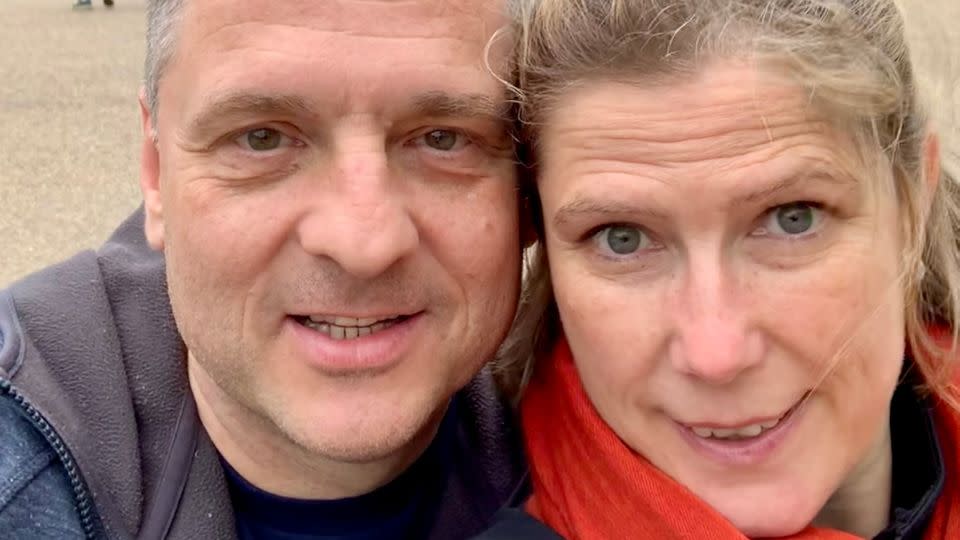
“I explain to people there that it actually makes my day when people ask how I’m doing in the US, it’s a gesture I appreciate,” she says, adding that there’s a huge cultural divide between Europe and the United States, not to mention within Europe.
“In Germany, it’s almost like it’s expected not to be happy-go-lucky all the time because then people doubt your sincerity,” Sappok says. “You have to have a certain level of cynicism and criticism because that’s what makes you smart.”
She says she gets very upset when she sees Europeans “pooh-poohing” the United States.
“This is a good country, it’s truly a good country,” she says. If she and her husband eventually move back to Germany, it will only be for the support of the social system there.
“For us, in the end, it’s going to be a question of can we afford to grow old in the US and New York City in particular,” she says.
Sappok is aware she benefited from things like free university education in Germany and “didn’t really pay it back,” she says, since she moved to the US early on to work and live.
“There’s a little bit of guilt there, but as long as I can work and can do what I’m doing, I don’t want to move anywhere,” she says.
The only things she says she misses from her home country are family and certain dishes, including the Swabian specialty called maultaschen, beloved in her native Stuttgart.
“You can get a lot of things in the US, but you still cannot get those dumplings,” she says.
People telling you to ‘go for it’
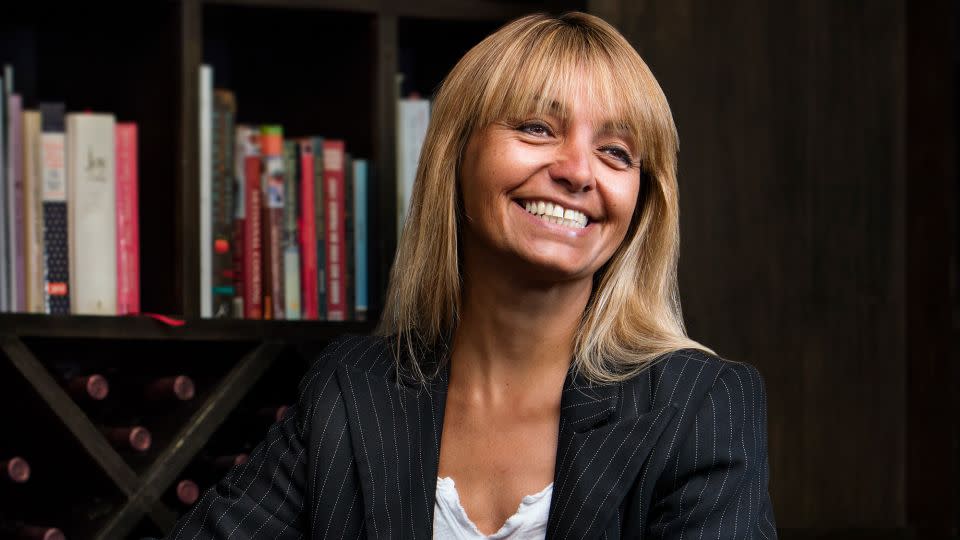
Originally from France, Laurence Noguier, co-owner of the restaurant Bistronomic in Chicago, moved to the city in 1998 when she was 27.
She also cites the spirit of American entrepreneurship as something she cherishes about her adopted country.
“In the US if you have a project, the proper work attitude, a little common sense and the will to make it, you really find an audience, a support system and people telling you to ‘go for it!’ she says. “If they have connections or resources, they will share these for you to get to the next step.”
France, by comparison, is a place where “you really need capital and connections to be an entrepreneur and the feature of failure is more inhibiting,” she says.
But her love for the United States goes beyond the business possibilities.
“I am an optimistic person. I can’t stand the ‘it was better before’ mentality,” she says.
Noguier, who is 53, says she also experiences less ageism here than in France.
“The US makes me feel relevant as a 50+ years old woman. Age is not a judgment. I feel empowered in the US, that I can be heard more than if I was in France,” she says.
That said, she does find the “constant quest to be better, more efficient and more relevant” in the United States exhausting at times.
And while the cost of health care in the United States compared with Europe is “quite exponential,” she says, “the cliches that there is no health care nor retirement in the US are actually false.”
Her heart and soul are bound to two countries, says Noguier, who has a green card and is planning to pursue citizenship this year.
“I feel more like an American when interacting with French people from France, and I want everyone to come here to the US and try to discover themselves in another world,” Noguier says. “Though I am proud to be European, I find myself, my personality, to be a much better fit in the US.”
Mixing into the melting pot
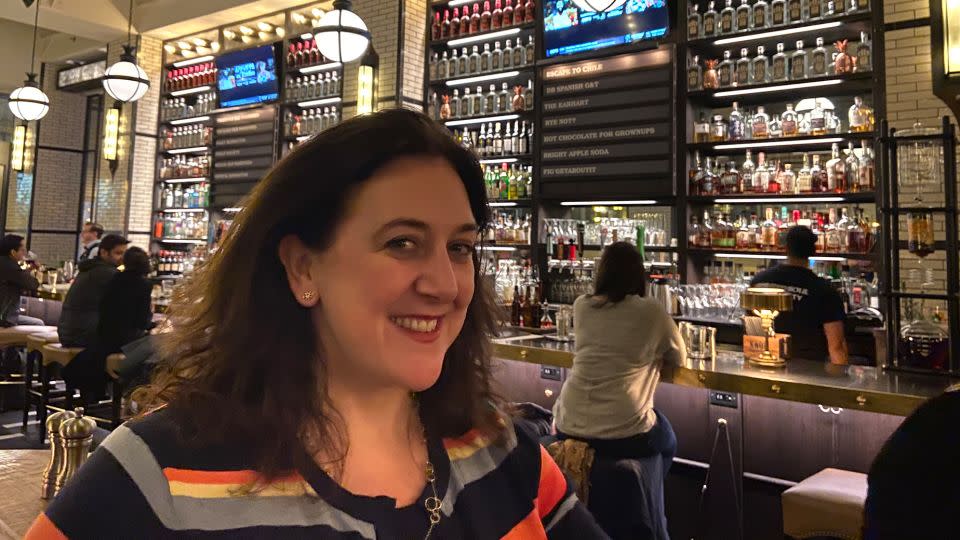
Clodagh Lawless, owner of The Dearborn tavern in Chicago, grew up in Galway, Ireland, and first came to America in 1998 after her parents secured visas for the family to move.
She says living in the United States has afforded her the privilege to get to know and befriend people of many different ethnicities.
“The US is a melting pot of people from many different cultures. That brings so much worldly education that cannot be found in any school or university,” says Lawless, who became a US citizen in 2017.
Unlike the Ireland of today, she says, when she was growing up there, she didn’t have the opportunity to meet many people from other countries since Ireland was not yet a major destination for migration.
She also prefers Chicago’s weather.
“Growing up in the west of Ireland, it always seemed to be raining,” she says. “Living in Chicago for 27 years, I just love the two seasons, winter and summer.”
She says while she’ll never say never, she cannot see herself ever moving back to Ireland full time.
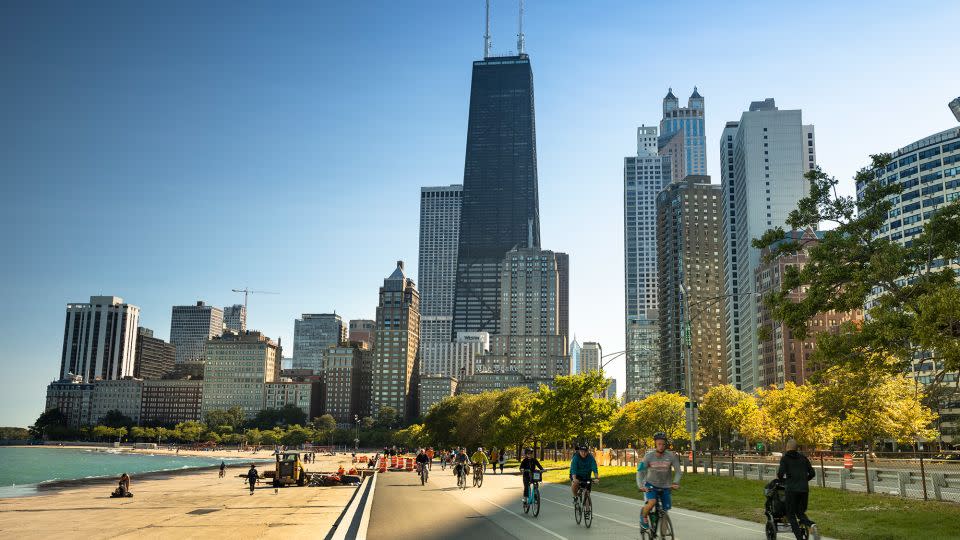
Her sons love being Irish-American, Lawless says, and are very proud of their Irish heritage as well as their “now-American” mom.
“Becoming a US citizen was one of the proudest moments of my life,” she says. “Just knowing the opportunities and privilege that comes with being an American makes me teary eyed every time I speak about it.”
Sunnier shores
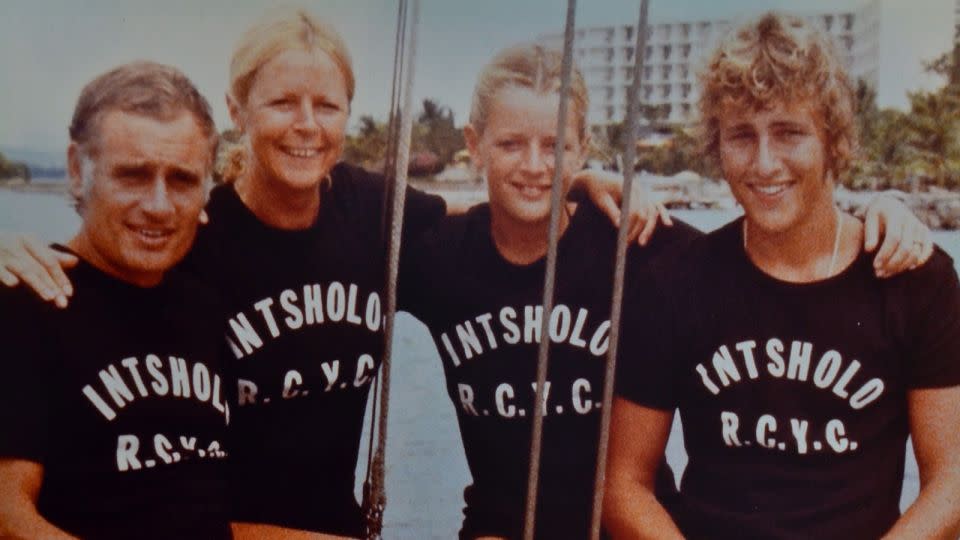
Lorna MacDonald came to the United States in 1979 when she was just 17 from Penzance, England, aboard a 45-foot sailboat she used to traverse the Atlantic Ocean with her mother, father and brother.
“There was no room for growth in what my family was doing in England, all my friends were leaving for Dubai or Australia at the time,” she says. “My dad always had an incredible sense of adventure.”
The family landed in Singer Island, Florida, and were bound for the Chesapeake Bay but fell in love with St. Augustine, Florida, while sailing through.
And that’s where they remain today. By 1981, the family had opened The Raintree, a beloved local restaurant MacDonald still owns, and by 1986, she’d become a US citizen.
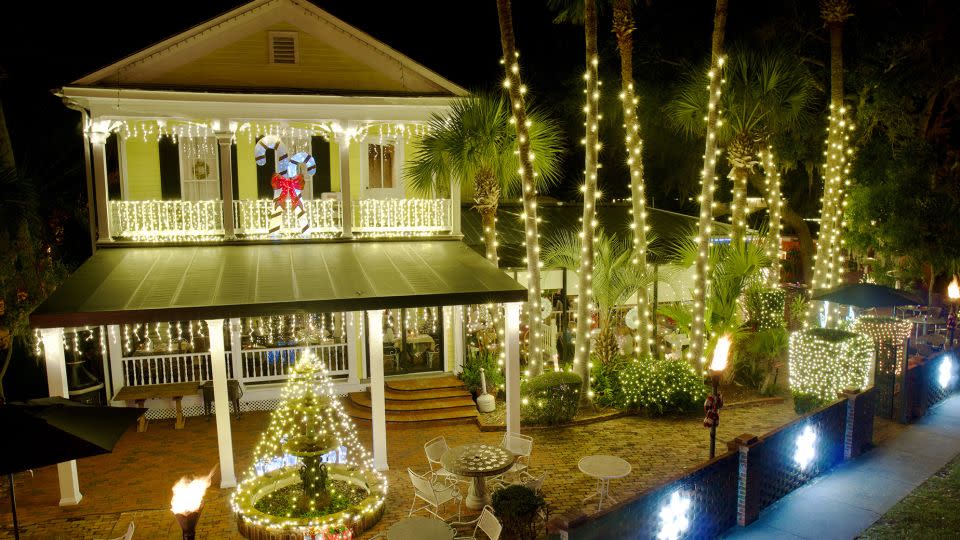
She returns to England regularly to visit school friends with whom she stays in touch, MacDonald says.
“Last time, my one friend got everyone together at the pub. It’s crazy how the years go by and you still connect,” she says.
But she says you “couldn’t pay her” to go back to live.
“When I go home now and look at the hometown, it’s really kind of depressing,” she says of Penzance. “It’s not vibrant, the economy there is a lot worse than our economy here. It seems very much more oppressive than here, and the weather has a lot to do with it.”
She also doesn’t miss the class structure she grew up with in England, she says.
“Here you meet all walks of life every day. It’s less judgmental of people and more go with the flow,” she says.
That said, England will always be home, MacDonald says.
“But I refer to the US as home when I’m there.”
Florida-based travel writer Terry Ward lives in Tampa and is working on getting her Italian citizenship.
For more CNN news and newsletters create an account at CNN.com


